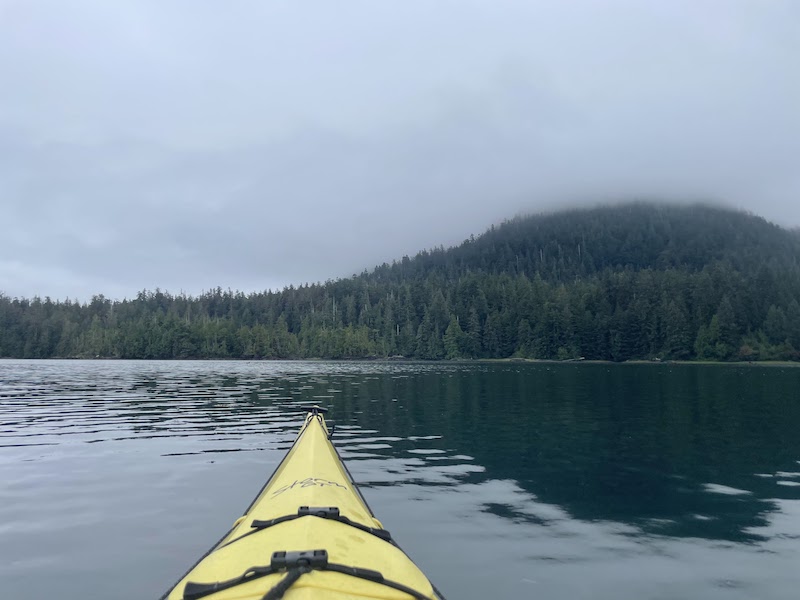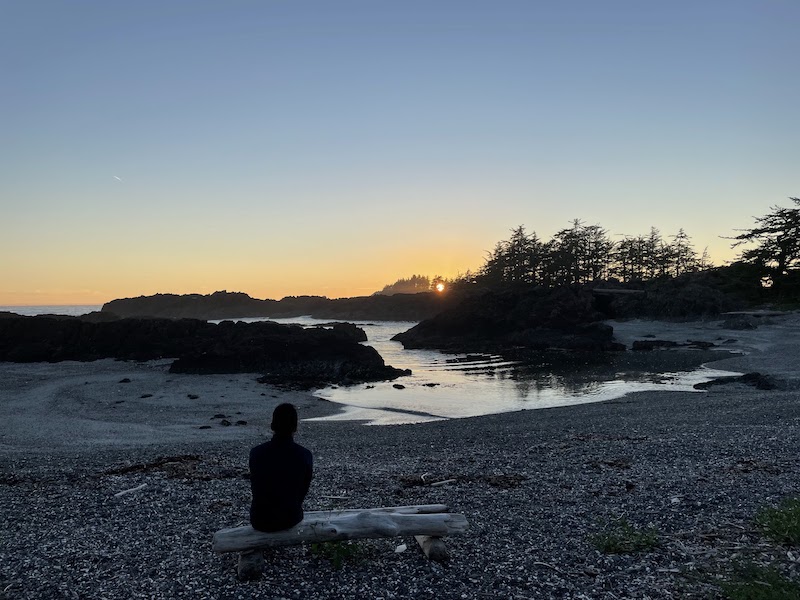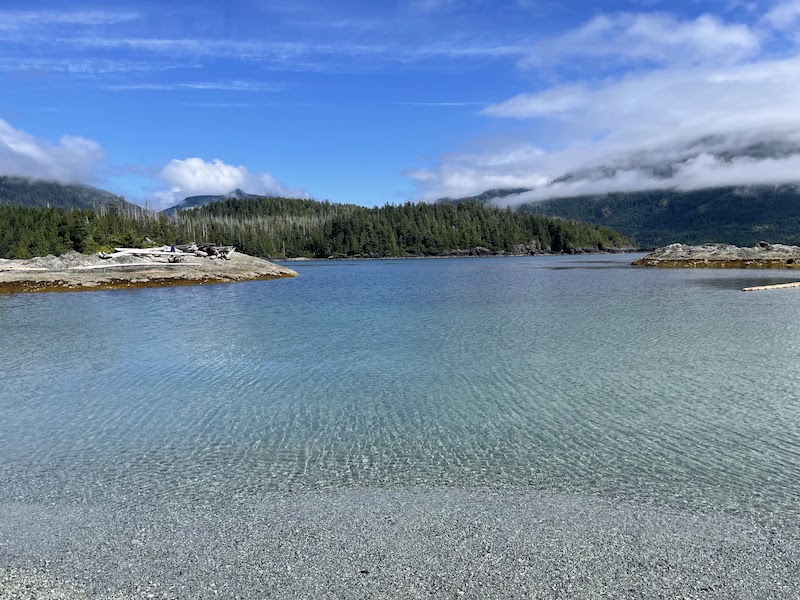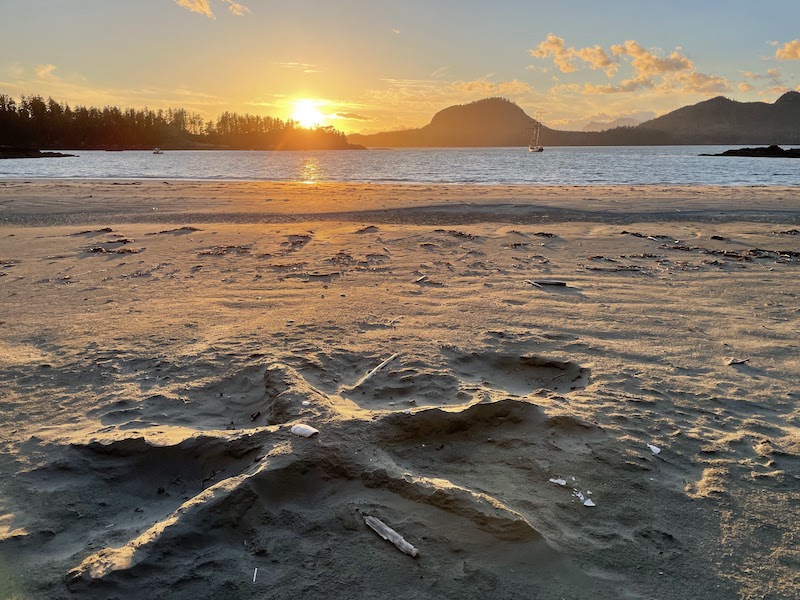I quit my software engineering job at Amazon on August 31, 2022. One week before my resignation, I was in the ocean for a week-long kayaking trip with my friends on the west coast of Vancouver Island, which turned out to be my longest adventure ever in such a remote environment without any utilities.

The vacation was unbelievably fantastic not only because of the unreal scenery & contact with wildlife but also as an opportunity to spend an abundant amount of time on self-reflection; I felt so good staying disconnected from the internet for an entire week, and I realized that having time to kill with an empty mind is the richest thing we will rarely experience in the modern life.
Takeaways? Life is short, and it can be like a paddling trip.
- Unpredictable, like the waves and tide.
- Absolute silence on the islands — Quality of life, in a true sense.
- Feeling of being part of the earth — How tiny our day-to-day struggles are.
Accumulating unpredictable experiences
Life is unpredictable, and my journey moving from one place to another on a case-by-case basis is pretty much like paddling in the ocean. While I can cruise at a comfortable pace with minimum use of power under perfect conditions, strong wind and bigger waves sometimes disable me to proceed to the desired direction in the shortest path, where I need to save energy and wisely use the pieces of equipment to get things right.

Working at Amazon was also the same. It was full of unpredictable experiences, and the conditions dynamically changed at a faster pace than I anticipated.
It’s been a little over a year since I joined the company as a Software Development Engineer - Personalization “for an experience”, and I finally decided to quit the company just as planned from the beginning; as I wrote a year ago, I had seen the opportunity as nothing more than a stepping stone and had never thought to work for Big Tech for a long time:
To be honest, I'm not a big fan of large companies, and I don't have a concept of "dream job" in my mind. Meanwhile, the need for visa sponsorship disabled me to be picky if I want to keep working in Canada. Thus, I believe this unique situation is going to be the first and last chance of validating its pros/cons by experiencing how a big company operates. […] No matter how I grow my career from now on, I have a strong impression that the new opportunity becomes a key stepping stone that I don't want to skip.
That said, the whole year was unexpectedly fruitful, and I had a lot of valuable experiences with talented people. If I hadn’t obtained a permanent residency in Canada yet, which eventually gave me the freedom of choosing jobs, I would see no issue with continuously working for the company a bit longer. I’d like to thank all the connections I was able to establish there, and it’s going to be a great addition to my life in many ways.
When I look back (from the beach), there are a couple of observations I’d like to particularly highlight.

Disclaimer: The statements below are completely my personal opinions biased by my limited experience, and they do not necessarily have to be true for everyone. None of them represents the views of the organization I was belonging to.
As a reminder, I chose Amazon because I was simply curious about the following points:
- The life in a big company;
- How the big company takes social responsibility;
- How they become Earth's most customer-centric company;
- The inside of Amazon's recommender systems;
- How Amazon's product managers work.
In my experience, #1-3 were clearly above the expectation, #4 was just as expected, and #5 was unfortunately below my expectation.
The company
Speaking of corporate culture and operations in general, I have been impressed by how sophisticated they are. People do care about the Leadership Principles, and I can easily see how seriously the core values are treated e.g., in talent review, hiring process, and employee training. Thanks to their way of taking responsibility across various scenes, the employees can be easily proud of working for the organization.
Moreover, since people managers are nicely educated about Amazon’s unique mindset, I, as an individual contributor, was particularly comfortable with talking about work, asking for help, and getting guidance to do the right thing. If you think of the criteria for good software engineering managers, I feel Amazon is one of the few companies owning such the large number of qualified managers who are not easily replaceable. I was fortunate enough to gain experience working with them and learn from their way of mentoring/helping people.
A day in the life of an Amazon engineer
(I liked watching such YouTube videos posted by Amazonians across multiple geo-locations.)
From the technical standpoint, there was no surprise about the inside of Amazon’s recommender systems. The systems are clearly “reasonable” for me who has been working on recommender systems for years both in academia and industry, and how the big company achieves operational excellence on the top was indeed fun to see. Meanwhile, as an organization gets bigger, it’s common that there are a lot of non-technical obstacles such as communication and decision making, and Amazon is not an exception.
One interesting experience I had was about Amazon’s unique document writing culture; as widely recognized, Amazon doesn’t use PowerPoint for communications, and the employees rather write a document to initiate discussion. The point here is, in my understanding, it’s so easy to hide important details (e.g., data points, anecdotes) in PowerPoint slides, and uninspiring communications can often be misleading or even a complete waste of time. However, on the other hand, documents tend to be too long to read line-by-line, and we cannot read everything given a limited amount of time. Ultimately, I’ve encountered a weird situation like: someone complaining about a particular point that I explicitly stated in a document in advance, which the person already reviewed and made no argument in the past. I generally agree with the statement that a narrative document is better than a PowerPoint presentation, but we must be good readers & writers at the same time to take full advantage of the mechanism. Lessons learned.
Product development
If I could raise only one disappointment from my 1-year of service, it’s unfortunate that I wasn’t able to learn anything from their approach to product (or project) management. Based on my experience as a product manager at a start-up company, I am a strong believer in starting from intrinsic motivation and working *with* customers:
- Hi Product Managers, Are You Creating Products That You Love?
- Ethical Product Developer
- "Why Do We Build This?" Humane Technologist's View of Bad Product/Project
So, I was excited to see how Amazon’s product organization runs a product development lifecycle, following their Customer Obsession principle. However, in practice, it’s still very much like top-down “leadership decision”-based executions that make it harder to see the influence from/to real end users, though some useful mechanisms are helping the process. As a result, many of the success criteria (c.f. "Definition of Done") are purely based on financial metrics, and product managers will be excited when a new feature derived a bigger revenue impact, which I cannot empathize with.
An underlying challenge is that each employee can also be seen as a “customer” of Amazon; I’m using amazon.com daily, so, if I feel the design of this new product feature isn’t good, that’s a customer’s voice, isn’t it? Well, our intuition is indeed a great input, but people who are building the systems knowing the internal stuff can be biased a lot. That’s why I do not trust myself/colleague’s opinion and do ask for the physical presence of an external “real customer” throughout product development.
Although it didn’t fit my way of product development as described above, one thing I liked about the company was the fact that they never look at competitors to design a product, because they are building a product for helping customers, not for beating the competitors.
When it comes to project execution, it should be noted that program managers shine a lot in the organization. Considering the scale of the company, it’s unavoidable to see a conflict among stakeholders and/or teams. Here, program managers have done a great job to enable smoother communication while eliminating unnecessary obstacles every developer may face. I was personally helped a lot by them.
Much-needed silence
Unpredictability brings excitement, but we cannot paddle in the dynamic ocean environment forever; it’s important to take a rest whenever needed, and during the remote ocean kayaking trip, we stopped at multiple uninhabited islands. I’m surprised by how quiet these islands are, and we only heard the natural sounds from the ocean, birds, and trees.

The principle can also be applied to our day-to-day work, and I painfully learned the point.
Later half of employment at Amazon was personally tough as I was almost diagnosed with depression due to how bad I was at achieving what Amazon calls “work-life harmony”. Honestly, I didn’t know how important stopping work at a certain point, no matter how much energy I still have. Additionally, since I was mostly working with US-based teams, a fully working-from-home environment with minimum human interactions simply amplified my loneliness, and my mental health deteriorated as time goes by. Note that, even though there are physical Amazon offices in Vancouver, people working there are essentially from the different teams I won’t interact with.
The experience allowed me to seriously think about how I can take an effective rest and spend quality time without feeling unnecessary pressure and anxiety. Eventually, I started seeking the next step to maximize my quality of life. If I didn’t have the issue with social ties, I might stay in the company longer even after becoming a permanent resident of Canada.
Whatever will be, will be
Thousands of stars and a clear milky way in the night sky, a whale blowing out the seawater right behind our kayaks, and strong wind blowing on a beach—Many memorable moments remind me of the fact that we all are part of this beautiful planet, and I realized how tiny my day-to-day struggles are compared to the scale of the nature.

As a next step, I will become a freelance software developer in Canada for the time being, so I can proactively seek an opportunity that I can truly empathize with. Being self-employed might expose me to a greater risk under an unexpected (or even expected) circumstance. For instance, I mentioned the issue of social ties, but wouldn't being self-employed weaken a connection to society even further? It may or may not be true; who knows how a day in my life changes after being independent?
I encountered countless challenges throughout my 10+ years of experience in the software engineering industry, including the ones I experienced at Amazon, and I’m pretty sure similar things could happen again and again moving forward. However, everything is just a tiny thing compared to the scale of the natural environment I’ve seen during the kayaking trip. So, I’m not worried too much about an eventual consequence. Que sera sera!
This article is part of the series: Becoming a CanadianSupport
Gift a cup of coffeeShare
Categories
See also
- 2022-12-18
- My 2022 Annual Review: Towards the Deepness
- 2021-12-26
- My 2021 Annual Review: A Year of Divergence (And Slowly Started Converging)
- 2021-08-28
- Next "Dot" in Journey: Curiosity-Driven Job Change in Canada (Aug 2021)
Last updated: 2022-09-02
Author: Takuya Kitazawa
I am an independent consultant, mentor, and advocate for sustainable technology development with a decade of experience in AI/ML products, data systems, and digital transformation. Based in Canada and originally from Japan, I have lived and worked globally, including part-time residence in Malawi, Africa. See CV for more information, or contact at [email protected].
NowDisclaimer
- Opinions are my own and do not represent the views of organizations I am/was belonging to.
- I am doing my best to ensure the accuracy and fair use of the information. However, there might be some errors, outdated information, or biased subjective statements because the main purpose of this blog is to jot down my personal thoughts as soon as possible before conducting an extensive investigation. Visitors understand the limitations and rely on any information at their own risk.
- That said, if there is any issue with the content, please contact me so I can take the necessary action.